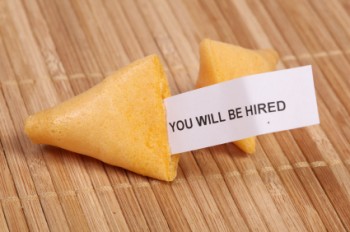 When you own your own business, it is tempting to get carried away when deciding who to hire. Most people are drawn to those most like themselves, and any veteran CEO will tell you that this is a common mistake when first starting a business. A business needs the collaboration of different types of people so that you have a unique set of ideas flowing through the office each day. If your entire staff is under 30 years old, you may be sacrificing some key experience needed to help your company be successful.
When you own your own business, it is tempting to get carried away when deciding who to hire. Most people are drawn to those most like themselves, and any veteran CEO will tell you that this is a common mistake when first starting a business. A business needs the collaboration of different types of people so that you have a unique set of ideas flowing through the office each day. If your entire staff is under 30 years old, you may be sacrificing some key experience needed to help your company be successful.
As with any decision, there are positive and negative effects. You are young, so you are aware that young people have the ability to be great businessmen and women, in some cases better than those who have been in the business-pool for many years, but it is important to remember that not all young graduates are up to the task of working for your company. More importantly, a business owner cannot discriminate because of age, no matter how tempting it may be, and applicants are protected through the Age Discrimination in Employment Act.
Forget all the stereotypes you’ve heard about young employees versus old, and consider a few universal truths about hiring that will help your company succeed.
Things to Look For At Any Age
There are many things to look for in a potential employee, but these tips are ones that many new entrepreneurs may be tempted to skip in order to hire candidates who may be younger and seem more exciting.
- Referrals – This is the most common way for new businesses to hire its very first employees. If someone you trust has a potential candidate for your company, chances are they will be successful because the person who referred the candidate put their reputation on the line. Ask people you trust or people you have worked for in the past if they know anyone who may be a good fit; then interview them and decide for yourself if they are right for your company.
- Location – If you have a friend who you know would be a great worker, but they have to work from a different location, you are better off finding a new candidate. If your business is still new, you need to have all of your employees immersed in your company and available in the blink of an eye, not the dial of a phone.
- Small Business Experience – Working for a big corporation is completely different than working for a small company. If they have only worked in large business environments, think twice about the hire. A startup company is different than a small, established company, but the traits needed in a worker are similar; however a large corporation is completely different.
- Payment Considerations – In most cases, a more experienced employee is more expensive to hire than a newer graduate. However, it is wise to look further than just the initial salary offer. If you hire someone with less experience, you may find hidden costs in training, but someone with more experience may be able to contribute to your company’s profitability. From a financial perspective, it is a good idea to hire a mixture of both the young and inexperienced and the veterans.
- Trial Run – If you can give a test or a quick project to see how an applicant would do in your company, you will have a better idea about how they work. This will help show you the type of quality that any age candidate can produce.
Amanda DiSilvestro is a writer on topics ranging from social media to document management software. She writes for an online resource that gives document software advice to small businesses and entrepreneurs at Resource Nation.




